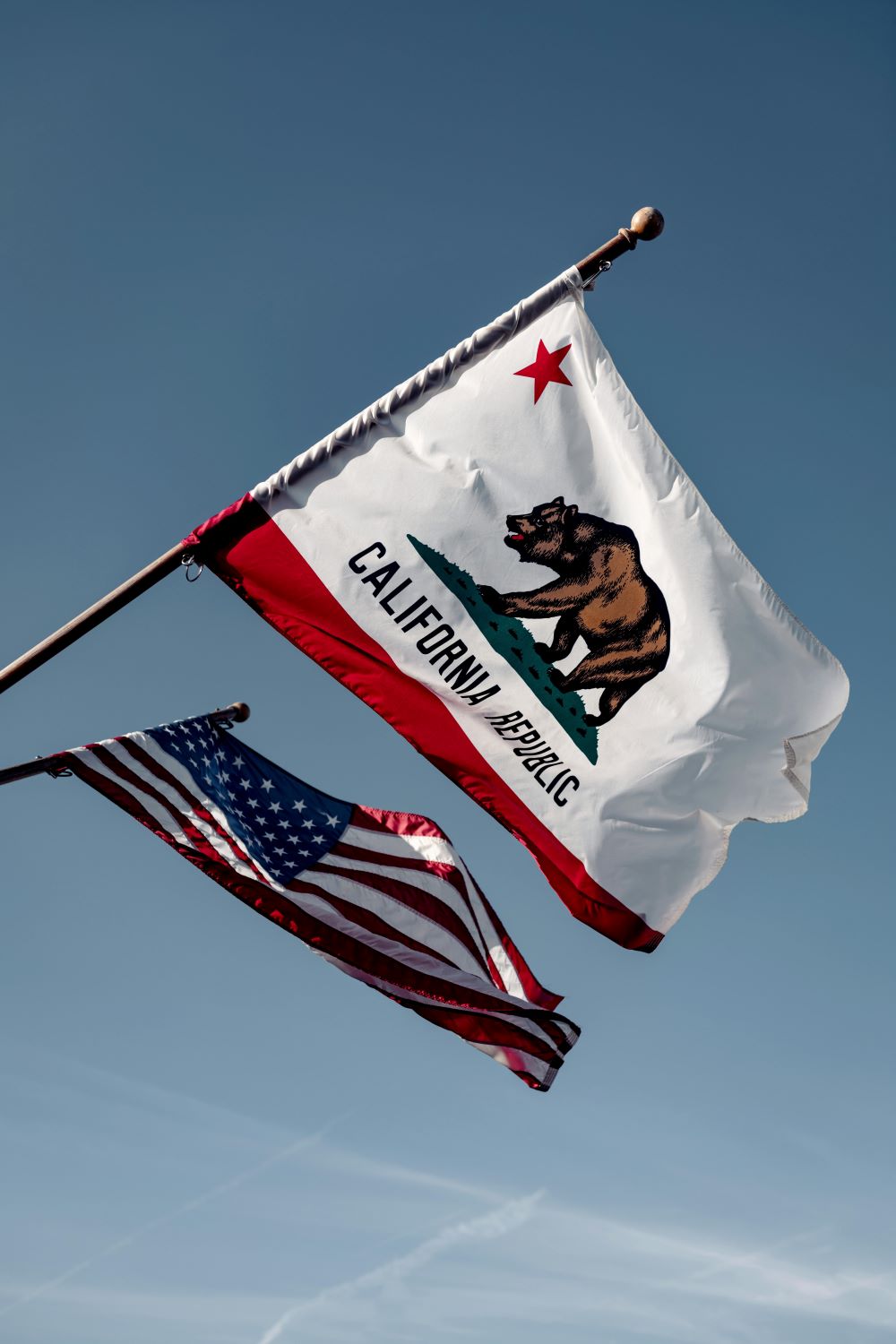Although frog jumping isn’t likely to come up in the day-to-day dealings of most businesses, a deeper understanding of the more impactful laws that make up California’s unique legal landscape could be a great benefit to any aspiring professional.
Ah, California. Blue skies and beaches. Mountains and the magnificent Redwoods. Yosemite.
And some of the most progressive laws in the world.
For decades, the Golden State has been the tip of the spear when it comes to legal regulations around environmental protection, employee rights and pay, and the safeguarding of personal data, to name only a few.
Because California has one of the world’s largest economies, it’s a great influencer of laws and corporate conduct in other U.S. states and other countries. Perhaps it’s philosophical: legislators in other jurisdictions are inspired by California to provide the same level of protection to precious resources like land and people. Maybe it’s simply practical: companies who want to do business in California’s enormous marketplace must adhere to its laws even if they’re not headquartered here, and to spare themselves from having to follow a patchwork of different laws, they simply raise their game and comply with the strictest ones — California’s. Perhaps it’s a combination of these factors and others, but the end result is that many of California’s unique legal regulations wind up not being so unique over time, as they’re emulated (or followed) by legislatures (or corporations) around the country and globe.
California Law vs. Federal Law
In many areas of law, the federal government sets the baseline legal requirements and states may either adhere to such law or set their own more stringent regulations. California has often chosen the more stringent route. Although there are numerous examples of this (gun control comes to mind), this article focuses on environmental protection, employee pay, and data privacy.
Environmental Laws and the ‘California Effect’
The “California Effect” describes the way California’s strict environmental laws have a tendency to take hold in other states, either through new laws in those states or through corporate action there. Some examples:
California’s Advance Clean Cars II (ACC II) Regulations
The upshot of these regulations is that “[b]y 2035 all new passenger cars, trucks and SUVs sold in California will be zero emissions.” The new law, which supports an executive order issued by California Governor Gavin Newsom, involves increasing the state’s already stringent tailpipe emissions standards and supports. Note that these regulations don’t mean one cannot drive gas-powered cars after 2035; they mean new cars sold after that date must be zero-emission.
- Comparison to federal law: The federal Clean Air Act gives the U.S. Environmental Protection Agency (EPA) the authority to set tailpipe emissions standards for new vehicles. However, the EPA granted California a waiver from those standards, allowing the state to set its own.
- The “California Effect”: The Clean Air Act permits other states to adopt tailpipe emissions standards identical to California’s. As of September 2024, 12 states plus the District of Columbia had done so, adopting their own ACC II regulations.
California’s Climate Accountability Package
This new climate package, passed in 2023, consists of 2 laws that set out climate disclosure requirements for companies that meet certain revenue thresholds and do business in California (whether they’re headquartered there): the Climate Corporate Data Accountability Act (SB 253), which requires companies to report Scope 1, 2, and 3 GHG emissions data, and the Greenhouse Gases: Climate-Related Financial Risks Act (SB 261), which requires companies to disclose their climate-related financial risks and the measures they’re taking to reduce or adapt to such risks.
- Comparison to federal law: The U.S. Securities and Exchange Commission (SEC)’s final rule on corporate disclosures, issued in 2024, is less stringent than the California laws in several ways and has been voluntarily stayed, which means it’s not in effect.
- The “California Effect”: Washington, Illinois, and Minnesota are now considering climate disclosure legislation similar to California’s, as is New York, which is reviewing two separate but related laws.
Other California Environmental Laws: From Climate Crisis to Drinking Straws
In addition to the above, California has passed other laws relating to major climate change and environmental protection initiatives, such as the California Climate Crisis Act, which aims for net zero greenhouse gas emissions by 2045, and the California Carbon Capture and Storage Program, which, as its name suggests, seeks to find ways to capture and store carbon emissions.
The state has also set the tone in terms of initiatives that may appear to be less significant, but have a ripple effect given the number of people who live in and visit the Golden State. For example, AB 1276 seeks to control the amount of plastic put into the state’s environment by prohibiting restaurants from providing “single-use foodware accessories” such as utensils and straws unless a customer asks for them. With the same goal in mind, AB 1046 requires that “pre checkout bags” (such as those supplied in the produce section of a grocer) must be biodegradable, while AB 1053 requires, among other things, that stores must charge at least 10 cents for bags provided at check out.
Employment and Labor Laws
Perhaps the most striking example of California’s election to go beyond federal law in the employment context is minimum wage.
- The federal minimum wage: $7.25/hour.
- California’s minimum wage: $16.50/hour except for
Online Data Privacy Laws

California led the nation in data privacy when, in 2018, it passed the California Consumer Privacy Act (CCPA), which introduced enormous compliance requirements for the majority of businesses that collected personal information from Californians. In response to the CCPA, and because there was no federal equivalent, 19 other states created their own data privacy laws and many more states are actively considering such legislation.
In 2023, California passed the new California Privacy Rights Act (CPRA), amending the CCPA to give Californians even more rights to control their online data. Although there appears to be some debate as to whether the CPRA is stronger than the federal American Data Privacy and Protection Act (ADPPA), which is still being considered, it’s undisputed that California’s new law is certainly strong, bringing consumer protections in line with the EU’s General Data Protection Regulation (GDPR), which is considered to be the strictest data protection law in the world.
Unusual and Quirky Legal Regulations in California
Like other states, California also has its share of legal regulations that may have been created for an important purpose, but now seem downright quirky. For example, there still exist in California laws that prohibit a person from:
- Wearing of false whiskers during the commission of a crime.
- Eating a frog that dies during a frog jumping contest.
- Allowing an employee to clean equipment with rags made from dirty underwear.
- In San Francisco, carrying bread in an open container.
Learn More About Law
Although frog jumping isn’t likely to come up in the day-to-day dealings of most businesses, a deeper understanding of the more impactful laws that make up California’s unique legal landscape could be a great benefit to any aspiring professional. There are countless legal education opportunities in the Golden State, including online law school.


Join the conversation!